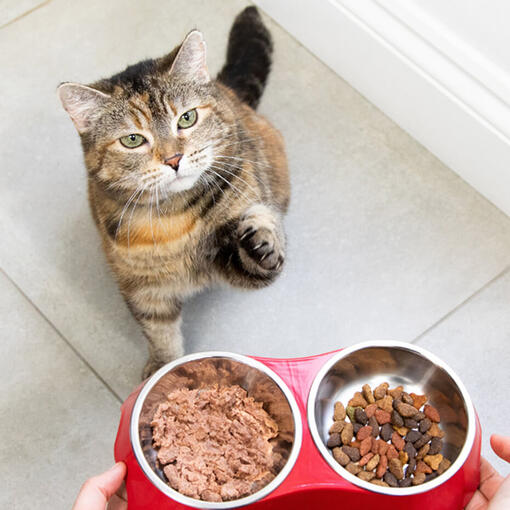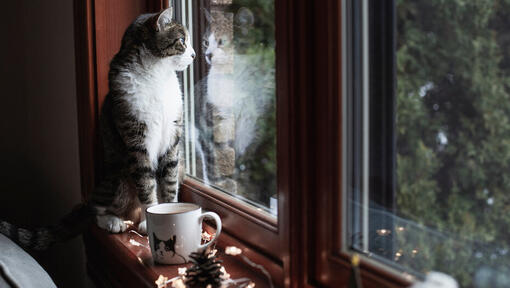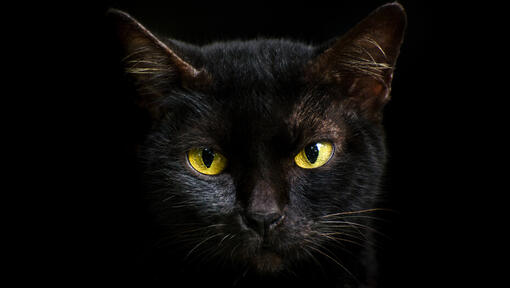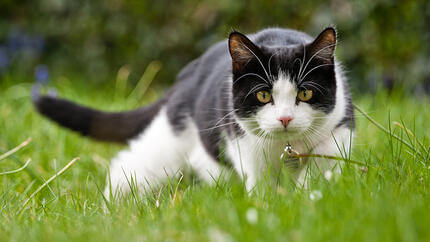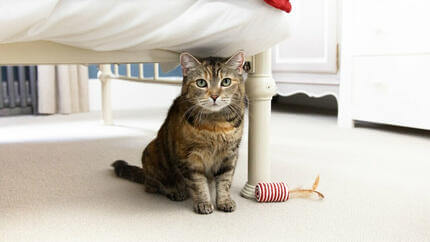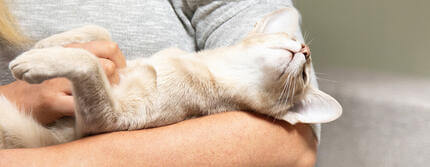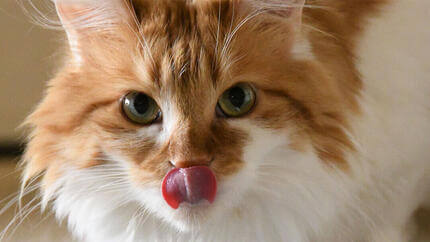
Hearing a cat meowing at night is not uncommon – but if you are a cat owner and it’s your cat that is meowing at night, it may be something that you are concerned about. Also known as night vocalisation or night calling, if your cat is meowing at night it can be a problem if it is a sign of their discomfort or it’s disturbing your rest. Read on to find out more about the reasons that your cat may be being particularly vocal at night.
It’s widely known that cats are night owls. It seems that the moment we switch off the light they get straight to sprinting around the house –like the cat version of dog zoomies. When they’re getting up to their night time antics they may also meow a lot. And, sometimes your cat meowing at night can be extremely disruptive and get in the way of you getting your much-needed rest.
If your feline friend does this and you’re wondering why does my cat meow at night and what can I do about it? We’ve got the answers to your questions! Here at Purina, we’ve put together this guide to tell you all you need to know.
Why does my cat meow at night?
If you have a cat yowling at night, it’s only natural that you’ll be wondering why they do it. There are six common reasons why your kitty may be doing this, including:
1. Cats are naturally more active at night
Your cat’s meowing at night may have much to do with the fact that they are naturally more active at certain hours of the night. Although it’s popularly thought that cats are nocturnal, this is not strictly true. However, they are crepuscular – meaning that they are naturally most active at dusk and dawn. Although many cats do adapt to the routine of their owners, this crepuscular tendency means that your cat may be especially active in the early hours of the morning, when the rest of the house is asleep.
Younger cats have an increased tendency to be active at night, as their instincts tell them that this is a great time to hunt. As they mature, though, it is likely that their rhythm will adapt to that of the rest of the household, which may hopefully mean less cat meowing at night.
2. Your cat may be bored or unstimulated
Cat crying at night may be simply because they’re bored – or because they haven’t tired themselves out during the day. Active play before bedtime may help to ensure that they are more tired out at night, as will trying to keep their minds active and happy during the day. Cat meowing at night can essentially be attention-seeking behaviour.
Although it is important to attend to your cat’s needs, constantly complying with their asking for attention may lead to them asking for it more frequently, so if this is a frequent occurrence, try not to give in too often.
If you have an indoor cat without access to outdoor space, you’ll need to make plenty of time for play throughout the day, otherwise they may find themselves a touch hard done by when you go off to bed, leading to your cat yowling at night. Find out more about mental stimulation for your indoor cat with our handy guide.
3. Overactive thyroid or kidney disease
If your cat is meowing at night on a frequent basis, it’s a good idea to consult with a vet to check up on their health. This is because excessive vocalisation, including at night, can be a sign of overactive thyroid or kidney disease in cats.
4. A symptom of ageing if your cat is a senior
Ageing can affect all of us, and cats are no different. As they age, it is possible that the effects of ageing on the brain can leave your cat disoriented. CDS (Cognitive Disfunction Syndrome) is directly related to the effect of ageing on a cat’s brain, and can have a variety of symptoms, of which meowing at night is one.
5. Outdoor cats may feel trapped
If your cat is an outdoor cat during the day, and you keep them indoors at night, there is a good chance that they may be meowing at night because they are feeling trapped. If it is safe, consider installing a cat flap and letting them go out at night so that they are free to expend their energy outside.
6. Yowling could be the sound of mating
As many of us know through experience, extremely loud screeching and cats’ yowling at night can be the sound of mating.
This is a natural process, but we strongly suggest that you get your cat neutered – both male and female – as it significantly reduces the number of unwanted kittens. Not to mention, it’ll also stop the loud yowling sound!
What can be done about cat meowing at night?
As always, the first port of call should be the vet’s office, to make sure that there is nothing physically wrong with your cat. They are also likely to be able to give you advice on things that may help with trying to reduce the instances of your cat’s night meowing. However, things like keeping your cat more active during the day and feeding them later in the evening to keep them satiated at night may have a positive impact.
It can be tricky to know what our pets need from us. Take a look at our cat body language article for information on how to tell how your cat is feeling through their body language.
Find out how old your feline companion is in human years using the age calculator below:
My cat is
under
1
years old
year old

